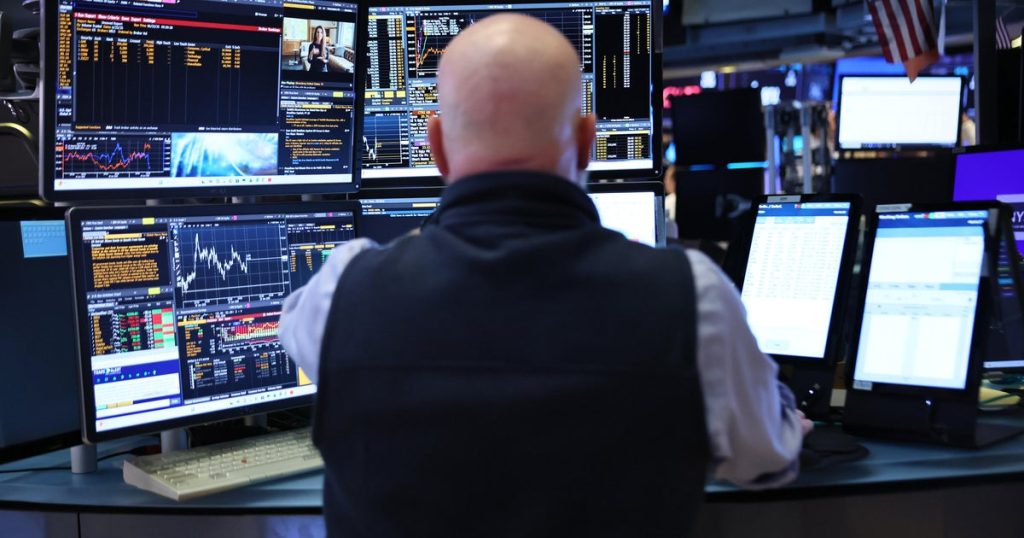On Tuesday, stocks indicated a further increase as futures contracts surged, buoyed by optimism surrounding a possible ceasefire between Israel and Iran. This uptick in the market follows Israel’s acceptance of a ceasefire earlier in the day, which has tempered geopolitical concerns. Meanwhile, various international stock indexes also displayed positive performance, and oil prices experienced a significant drop.
| Article Subheadings |
|---|
| 1) Market Reactions to Ceasefire Announcements |
| 2) Global Stock Market Movements |
| 3) Current Trends in Oil Prices |
| 4) Federal Reserve’s Economic Insights |
| 5) Future Implications for Economic Stability |
Market Reactions to Ceasefire Announcements
Investor sentiment shifted positively following an announcement that Israel accepted a ceasefire. Futures contracts reflect this optimism, with S&P 500 futures climbing 42 points, marking a 0.7% increase. The Dow Jones Industrial Average futures added 274 points, attributed to a 0.6% rise, while Nasdaq Composite futures surged by 1%. Investors have been closely monitoring geopolitical tensions, and with the announcement of potential de-escalation between Israel and Iran, there is a renewed sense of hope in the market. Investor confidence has notably improved, driven by both the civilian safety concerns and the potential for a stable market in the wake of international conflicts.
Global Stock Market Movements
International stocks mirrored the positive trend set by U.S. futures. Germany’s DAX index rose by 1.8%, demonstrating significant investor confidence in European markets as well. The CAC 40 in Paris added 1.2%, while Britain’s FTSE 100 experienced a modest increase of 0.3%. Asian markets followed suit, with Japan’s Nikkei climbing by 1.1% and The Shanghai Composite index rising slightly by 1.2%. The global market’s recovery can be attributed to a collective response to the positive developments in the Middle East, showcasing how interconnected financial markets can react to geopolitical events in real-time.
Current Trends in Oil Prices
In the wake of the recent conflict and subsequent ceasefire, oil prices have seen a significant decline. U.S. benchmark crude fell by 3%, settling at $66.49 per barrel, while Brent crude also dropped 3% to $69.38. The initial spike in oil prices above $78 following the onset of hostilities raised concerns of higher energy costs for American consumers. However, as geopolitical tensions ease, investors are quickly adjusting their strategies, prompting a drop in oil prices that reflects lower risk in the global supply chain. Analysts are closely examining this trend as it could affect inflation and consumer spending in the upcoming quarters if prices stabilize at lower levels.
Federal Reserve’s Economic Insights
As investors analyze the market’s movements, the role of the Federal Reserve remains crucial. Federal Reserve Chair Jerome Powell is scheduled to testify before Congress, presenting his insights on the current economic outlook. In light of the Fed’s recent decision to maintain the federal funds rate within the range of 4.25% to 4.5%, Powell’s remarks underline the balance of a steady labor market against the rising inflation risks that tariffs might pose. With his semiannual appearance before Congress, Powell aims to provide clarity on how external factors—including geopolitical events—are influencing monetary policy. He emphasized that while the job market remains resilient, uncertainty clouds the economic horizon.
Future Implications for Economic Stability
Looking ahead, the implications of the current market dynamics are significant for economic stability. The ongoing monitoring of international relations, particularly with Iran and Israel, will be an essential factor that could either bolster or hinder economic growth. Should the ceasefire hold and tensions de-escalate further, it may foster a conducive environment for economic activities and consumer confidence. Conversely, any renewed conflict could destabilize these markets and lead to increased volatility. As Jerome Powell prepares for discussions with legislators, the need for coherent strategies that consider both domestic and global issues becomes more critical—especially as various sectors look to navigate through uncertain economic waters.
| No. | Key Points |
|---|---|
| 1 | Stocks are experiencing gains due to optimism around a ceasefire between Israel and Iran. |
| 2 | International markets are following the upward trend, indicating broad global confidence. |
| 3 | Oil prices have substantially dropped since the outset of the conflict, reflecting reduced geopolitical risk. |
| 4 | The Federal Reserve Chair will provide key insights that could influence future economic policy. |
| 5 | Future market stability may depend on sustained geopolitical peace and effective economic strategies. |
Summary
The recent developments concerning geopolitical tensions between Israel and Iran have resulted in a notable recovery in stock markets, with positive movements in futures and international indexes. While oil prices have decreased significantly, the Federal Reserve’s insights could further influence economic trajectories in the weeks to come. As the situation continues to evolve, market participants are urged to remain vigilant and prepared for fluctuations that may arise from international developments.
Frequently Asked Questions
Question: Why did stocks increase following the announcement of a ceasefire?
Stocks increased due to investor optimism surrounding the potential for de-escalation in geopolitical tensions, which is often accompanied by reduced uncertainty and risk in the market.
Question: How have international markets reacted to the situation?
International markets have mirrored the positive trends observed in U.S. stocks, signaling widespread investor confidence influenced by better geopolitical relations.
Question: What is the significance of the Federal Reserve Chair’s testimony before Congress?
The Federal Reserve Chair’s testimony is crucial as it provides insights on the economic outlook, which could influence monetary policy decisions and market stability in light of external risks.


